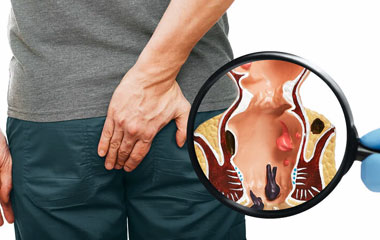hemalbhagat@hotmail.com
Get a Consultation
Piles are the result of swollen veins in the lower anus and rectum. They can cause tissue growths in and around the anus and can lead to significant discomfort. These growths can vary in size and location.

In most cases, the symptoms of piles are not serious and resolve on their own.
An individual with piles may experience the following symptoms:
Piles can escalate into a more severe condition. These include:
However, many people with piles may not experience any symptoms.
Piles result from increased pressure in the lower rectum.
The blood vessels around the anus and the rectum will stretch under pressure and may swell or bulge, forming piles. This may be due to:
In most cases, piles resolve on their own without the need for any treatment. However, some treatments can help significantly reduce the discomfort and itching that many people experience with piles.
Lifestyle changes
A doctor will initially recommend some lifestyle changes to manage piles.
Piles can occur due to straining during bowel movements. Excessive straining is the result of constipation. A change in diet can help keep the stools regular and soft. This involves eating more fiber, such as fruit and vegetables, or primarily eating bran-based breakfast cereals.
A doctor may also advise the person with piles to increase their water consumption. Losing weight may help reduce the incidence and severity of piles.
To prevent piles, doctors also advise exercising and avoiding straining to pass stools. Exercising is one of the main therapies for piles.
Medications
Several medicinal options are available to make symptoms more manageable for an individual with piles:
Surgical options
If a person has severe prolapsed piles or internal piles that are bleeding, surgery may be necessary. Surgical procedures for piles include: